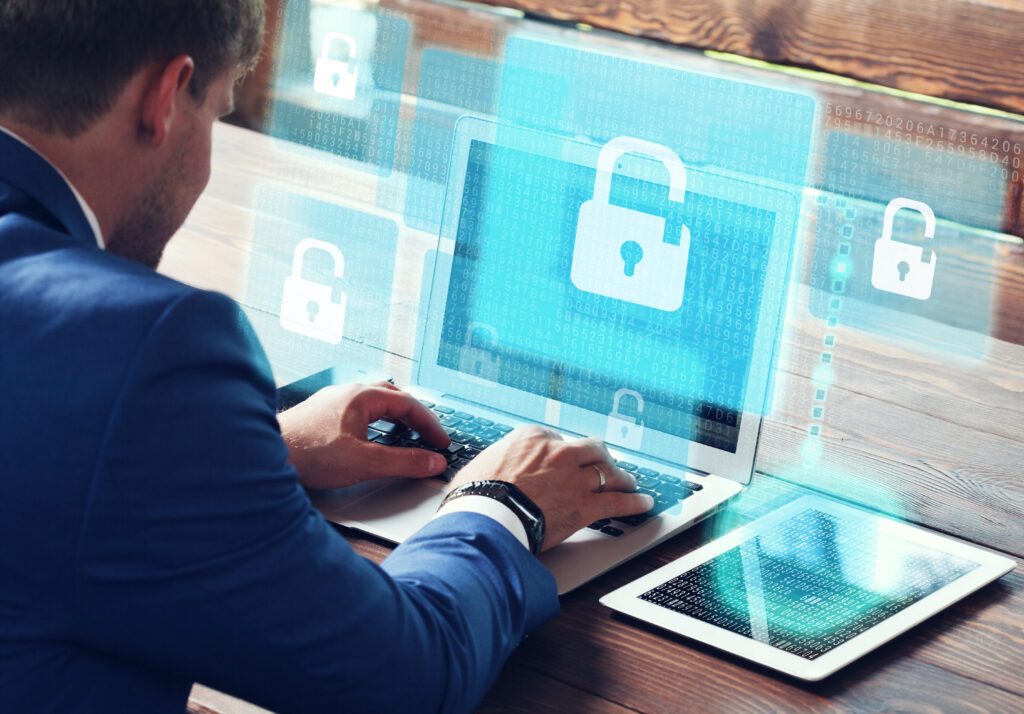In the aftermath of the global pandemic, commercial real estate is experiencing a resurgence. The real estate market is developing confidence to build once more. However, we are now in a different world than the one we left behind before COVID-19. There are greater security considerations to fully safeguard your building.

Here we detail the key security trends penetrating commercial real estate.
Integrating Security Technology
Owning commercial real estate comes with a responsibility for the welfare of the tenants. Integrating cyber security and physical security ensures that you have provided all available precautions for your tenants and your buildings. Installing these integrations would turn your commercial real estate into a smart building.
Access Control
An access control system is an important security measure to safeguard your building. New developments and trends in this area allow you to use your mobile phone in place of a key card.
The multi-factor authentication feature of your mobile phone device increases security by verifying the identity of the user using the credential. This reduces the chance of unauthorized personnel accessing the building.
Utilizing wireless IoT devices allows for remote access management capabilities for the building manager. Credentials can be amended remotely so the manager does not need to be on-site. Changes can be made instantly, providing a convenient feature.
Video Intercom
Integrating video intercom into your access control system fortifies your security further. You are able to see who is gaining access with the authorized credentials and if there are any problems. The video intercom allows you to instantly identify who is gaining access to your building. It will also track and monitor access which is perfect for buildings that have visitors constantly entering and exiting.
Using a cloud-based access control system with a commercial video intercom is also perfect for guest management. If a guest attempts to enter the building, a notification will be sent to you remotely. You can immediately identify the guest and allow them entry.
Automated Building Management
Implementing automated building management into your commercial real estate utilizes up-to-date technology for your tenant. You can install controls to manage lighting, heating, air conditioning, and ventilation. All door controls should, of course, be touchless.
Air conditioning and ventilation are important considerations in this post-pandemic world. Tenants and visitors want to know that all precautions have been taken to make sure they are breathing in cleaner air. Settings can be remotely adapted and altered as and when is necessary.
Hygiene Based Technology
Controlling air conditioning and ventilation inside of your commercial real estate are important considerations. However, there are further methods you can adopt to integrate hygiene based technology into your building.
Desk Management
As hybrid working becomes more desirable in office environments, overcrowded office spaces are becoming less desirable. Utilizing desk management software allows employees to book which desk they want to use and when. The booking and management system allows overcrowding to be assessed to prevent too many employees being in one area.
Temperature Reading Management
A touchless, infrared thermometer can identify when an employee has a fever before they enter the building. Some buildings are introducing airport-style scanners so that this process is done automatically and not invasively.
Touchless Entry Systems
In conjunction with an access control system, any entry points in the building should be touchless. A novel method which smart buildings utilize is by an employee using their mobile phone for external and internal doors. Bluetooth can be used in conjunction with the correct software for touchless entry and exit.
Health Checks
Employers can set up a system where the employees complete regular health checks to assess their wellbeing. One method is by asking employees to complete a health questionnaire before they arrive at work, declaring their daily health.
Commercial Real Estate Security
Traditionally, security in the commercial real estate world was focused on stopping an intruder from breaking into the building. The aim was to stop damage to the building and assets inside.
Over the last two decades, cybersecurity has become a second security consideration, safeguarding data, networks, and systems.
Today, commercial real estate must also consider health security and the safety of the employees inside of the building. Employers and commercial real estate have to analyze whether or not everything possible has been done to prevent employees becoming sick with an illness such as COVID-19 to reduce liabilities.